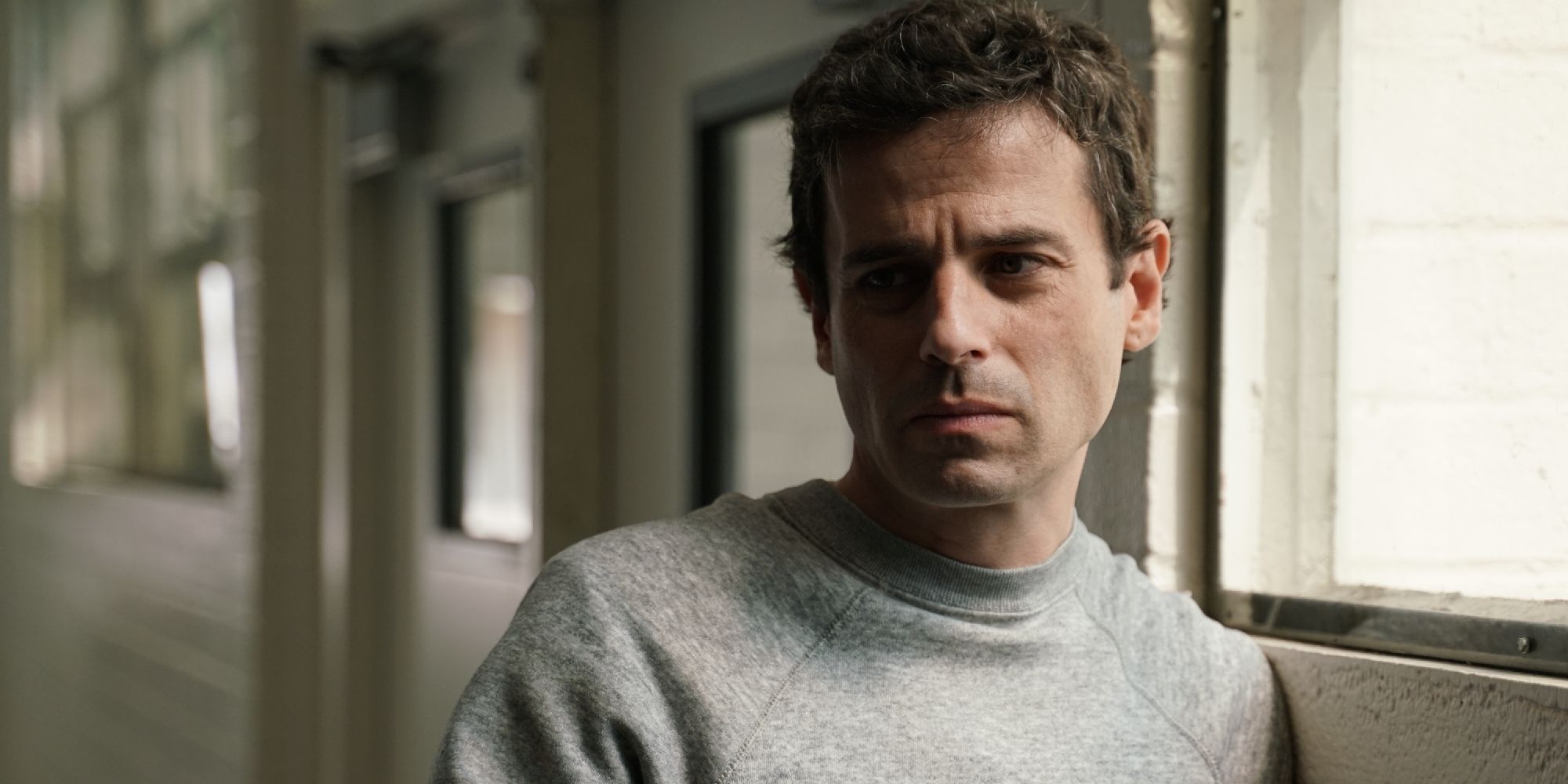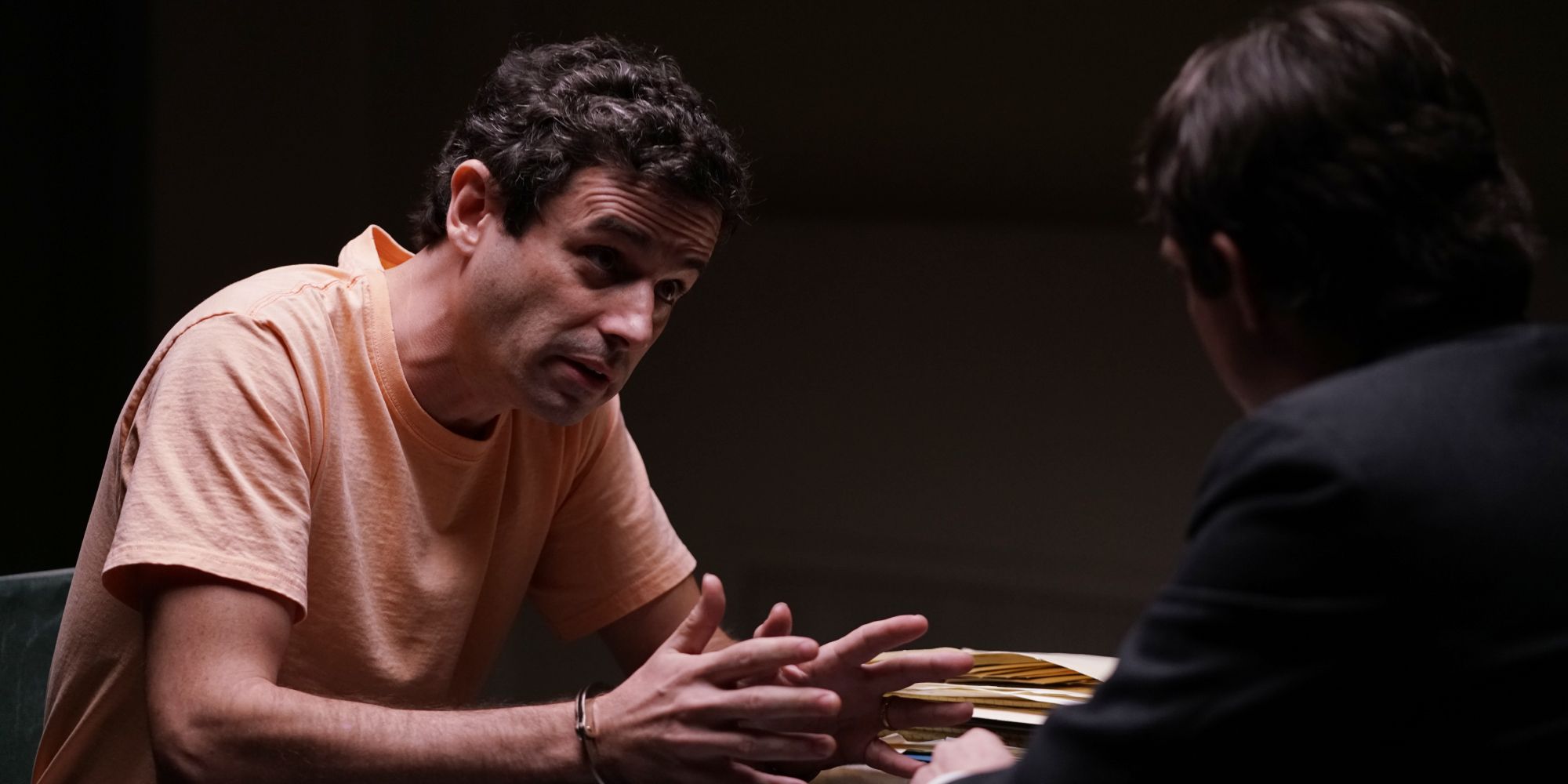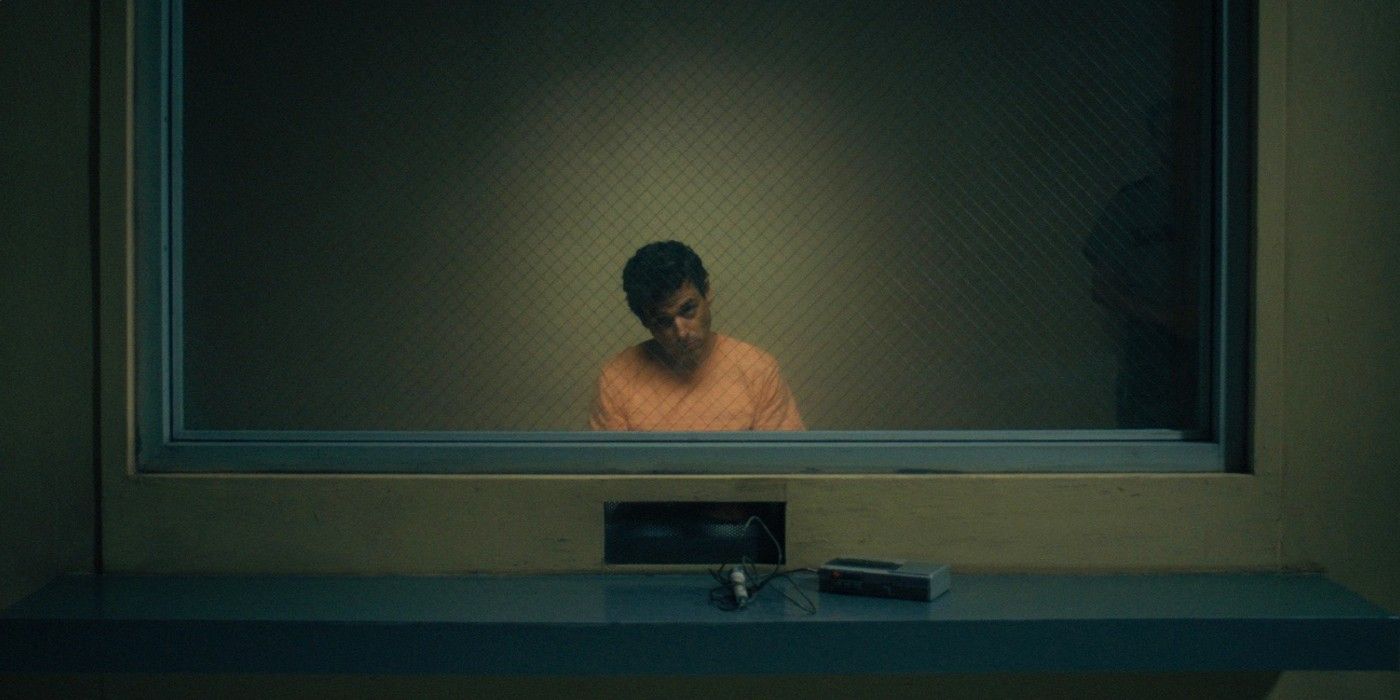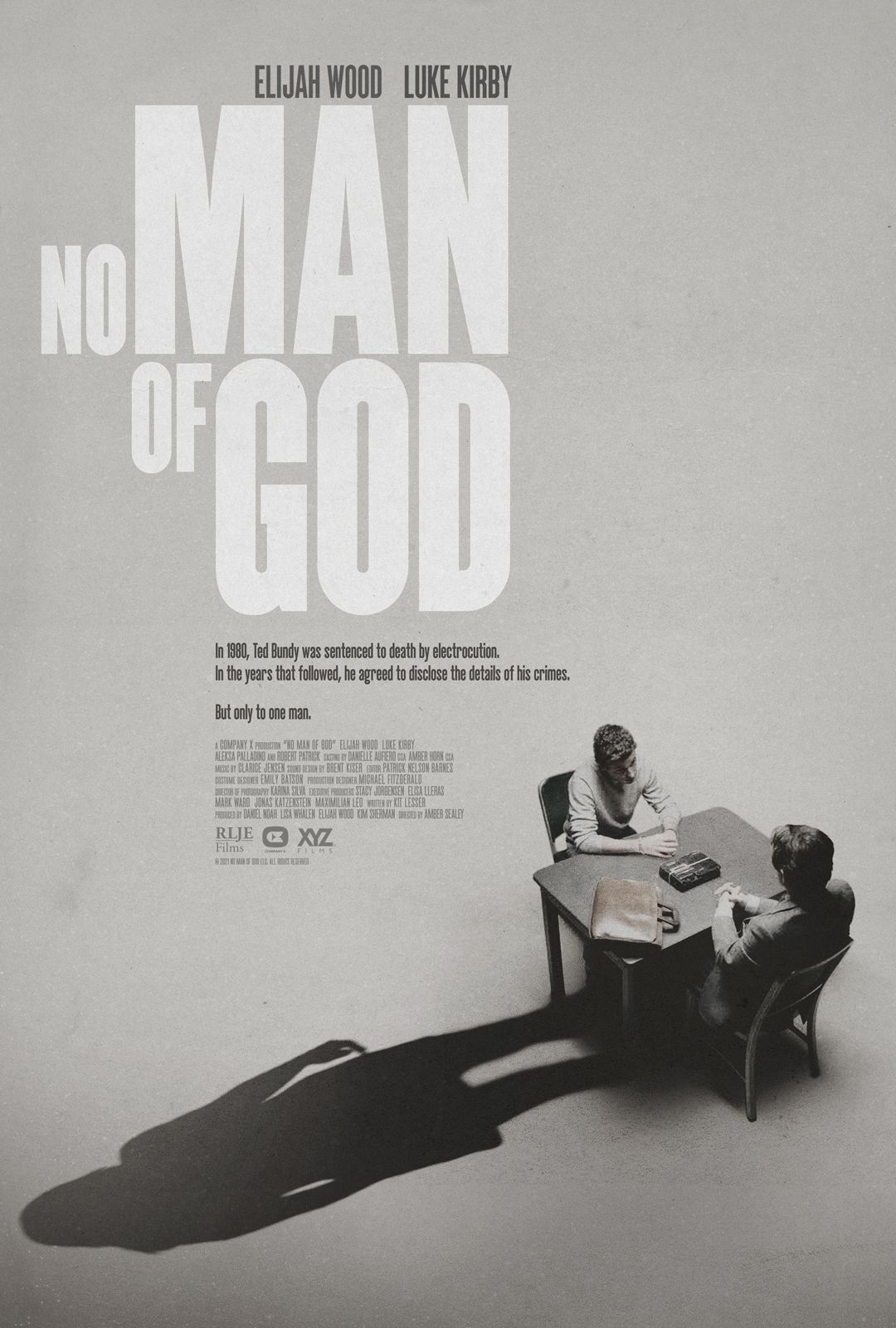No Man Of God may be dipping its toe in the Ted Bundy pool once more, but director Amber Sealy has a new approach to America's most notorious serial killer. The viewpoint character is real-life profiler Bill Hagmaier (played by Elijah Wood, who also produced the film), and the Ted (Luke Kirby) he interviews is far from glamorized in his final years of death row.
The film is based on the transcripts of conversations between Bundy and Hagmaier between 1984 and 1989, which were made possible because the former could tell Bill wasn't looking for a leg up in his career. Bill instead did his best to approach Ted as a real person and understand what motivated him, helping shape FBI profiling in its formative stages.
Kirby spoke to Screen Rant about the conversations required to get him on board with playing a mass murderer, his approach to the role, and the ways COVID protocols affected the filming process.
Screen Rant: Expressing how perfectly you inhabited Bundy may not sound like a compliment, but I was literally watching you in Marvelous Mrs. Maisel and Gossip Girl on the same day that I got my No Man of God screener, and your range is incredible. I know Amber Sealey personally sought you out for the role, so how did she pitch it to you?
Luke Kirby: She gave me the space when we met to really express questions and queries and revelations that I had about sort of participating in an ongoing fascination with this story, and these kinds of stories that oftentimes get sensationalized. And I don't think that the people that tell these stories have any handle on how not to get things sensationalized; I think that cat gets out of the bag and out of our hands, but it happens.
We were able to talk about that at length, and she gave me the space to talk about it. And it turned out that we shared some of those concerns, and she had a very thoughtful and human takes on things that made me feel compelled to adopt her as an authority on this journey. Then, by virtue of that, I followed her to the end of it. I was just intrigued by her as a director, and so I entrusted her with that. And we went for it.
That's precisely something I wanted to discuss because I know that it was a deliberate choice to have a woman direct the film due to the content at hand. But aside from the female gaze, Amber also brought her own perspective to a story that very much needed it, I would say. What did you feel her contribution added to the material?
Luke Kirby: I think that it's in the film that you see. It's colored with a presence that is specific to her and to her voice. Throughout the movie, there's this presence of the voiceless. She gives them a presence even when nothing is said explicitly.
It's very effective to me. As an audience, we're sort of watching these two men go through this little chamber piece of cat and mouse - or chess or whatever you want to call it. And at the same time, there's this presence throughout it, just challenging us as an audience to go, "What are we really investing in here?" It's a reminder of the truth of the story, which is that people were robbed of their life in really gruesome ways.
I feel like that is, for sure, something that Amber added. I also think that she's clearly an exceptional filmmaker, so a lot of the composition of the film just speaks to her talent. She has a deft hand, it's compelling, and has great rhythm - and a little added feature that I wouldn't have known about otherwise.
It's hard to imagine one-on-one conversations being cinematic, but you and Elijah manage to be captivating throughout. What was the process of building that wary but intimate dynamic?
Luke Kirby: It turned out to be a joy. I think for everyone on board, this was our first journey going back to work, and the early stages of what that was with COVID protocols. Initially, in terms of prep stuff, everything we did was done over Zoom calls. I think that fed into the isolation - certainly, the guy I'm playing is living a pretty severe version of isolation. And I think doing things that way was probably informative to us.
And then once we were together, it was just so nice for everybody to be around strangers again. We'd all been living in this really bizarre landscape for months and months and months, so you just want to glom on to people. I'm like, "What kind of music do you like? Do you like pizza? What toppings are you into?" It had that energy.
I didn't go to summer camp, but I imagine going to summer camp would have been like that. You have new people in your life that aren't the ones from the narrative of your school year. And it's like, "Oh, let's find out new stuff."
And with Elijah, he's an awesome dude. Very sweet, really into the work, and committed, but also just a formidable man. It feels funny to even talk about it, just because of the ease of it. We entered this room, and there was ease to the dynamic. I felt like I could really play in that little weird room.
I can relate to the returning to work part. Returning to in-person movie screenings, I can't wait to hear everyone around me reacting to a film.
Luke Kirby: I know, it's just crazy. It's crazy. It's nice to be reminded of that, given that everyone seems to be moving away from that experience more and more as the years go on. But there's nothing like it, right?
We really need each other. Though I may be wrong.
No, I think you're right. Meanwhile, I read that you found it freeing to not have a legacy to live up to when it comes to playing Ted Bundy. But did you do research in terms of vocal tics or mannerisms, not to mention having a window into his world through the real Bill Hagmaier?
Luke Kirby: Yeah, I think when I was speaking to that, it was because I'd been asked a little bit about the contrast of playing two different people in the public eye - as it relates to Lenny Bruce. I think, in that regard, I do feel a different kind of responsibility that's specific to many in his family - and his legacy. It did feel different.
But I did certainly explore a lot of footage. There's a lot of documentary footage, there's a lot of interviews, there's audio tapes that are really peculiar and eerie and gross and weird. I definitely think that all of that stuff has value.
It was just more of a question of how much of that you can take in a day. We were in L.A., driving around at night, there was the Bobcat Fire over the mountain and smoke everywhere, and we were in the midst of a pandemic. The landscape of Los Angeles for the last couple of years is alarming, in terms of how people are living outside - and listening to these tapes just felt like the end of the world. But you had to kind of laugh at how bizarre life becomes, that this is what we're doing with our time. And at the same time, it's kind of appropriate.
So, the way that it was freeing was that there were different days where I felt like, "I don't want to explore this guy. I want to do something else." And Amber gave me the space to do that. And I think that, in so doing, was able to get some good stuff.
I think one scene that stuck out to me most was where Bundy talks about his daughter, because what does someone with no regard for life - especially the lives of women - think of his daughter? Maybe you could talk about some moments that caused you the most cognitive dissonance, and how you work through humanizing a monster without mythologizing him.
Luke Kirby: Yes, I know. I think a lot of people talk that way. Like you said, it's that cognitive dissonance. When it comes to their family, it's a very different thing.
I had an encounter once. I saw Donald Rumsfeld, and I was about six feet away from him. And I felt anger towards him because of what his actions meant to my generation - our generation. We're still reeling from these decisions that resulted in decimation and unthinkable loss of life.
I know my reaction was anger and rage - but then, out of the same car that he had just gotten out of, I saw his wife. And something just melted in me. That's so stupid, but it melted me. There's nothing I can do; this is a person. I don't know that someone like him would share that same sentiment, but I do think that myself.
Obviously, war is complicated, ugly, weird, and bizarre - but people make decisions all the time to destroy lives. And, were it to be their family, you know that they would have a different angle on it.
I don't know if that offers any kind of insight. But I think with someone like Ted Bundy, it's so hard to know what his psychopathology was. This guy's so messed up that when he has this sort of sincerity, you wonder if it's a facsimile of sincerity, a blueprint of sincerity, or is it true? But I think that's something for people to decide until we know better.
I am so excited for The Marvelous Mrs. Maisel to return, and as something of a Lenny and Midge shipper, I must ask what’s the deal between them?
Luke Kirby: I promise you will see something of me. I worked on the show this season; I had a great time.
I will say that Amy Sherman-Palladino and Dan Palladino are no slouches, and they are committed to raising the bar every time they go back to work. And this season was no different. In the face of all the extra protocols and challenges that COVID presented, they were determined to not let it diminish the scope of the show. We all were asked to join in on that mission, and I know that by the end of it, everyone was operating on fumes - but that's a really great way to feel celebratory at the end of an endeavor.
So, yeah, I think that there'll be some good stuff.
No Man of God will be released on August 27, 2021, by RLJE Films.




